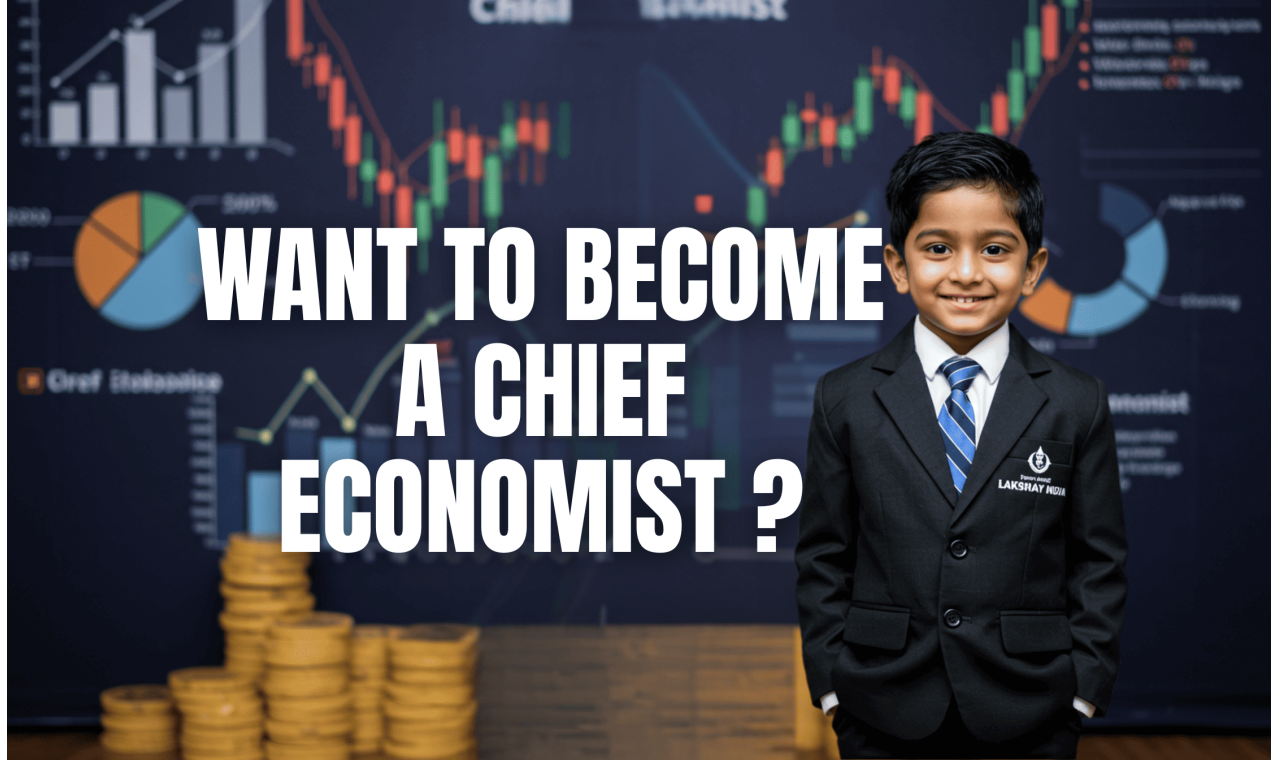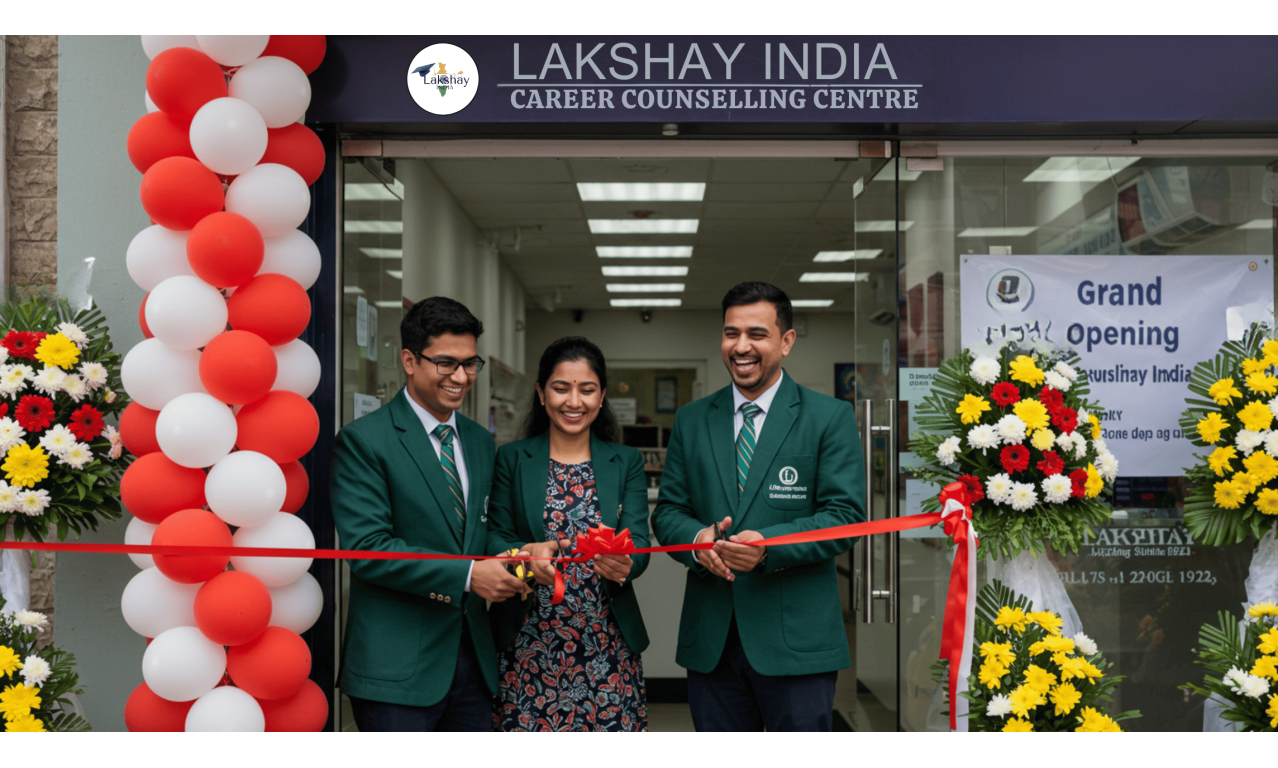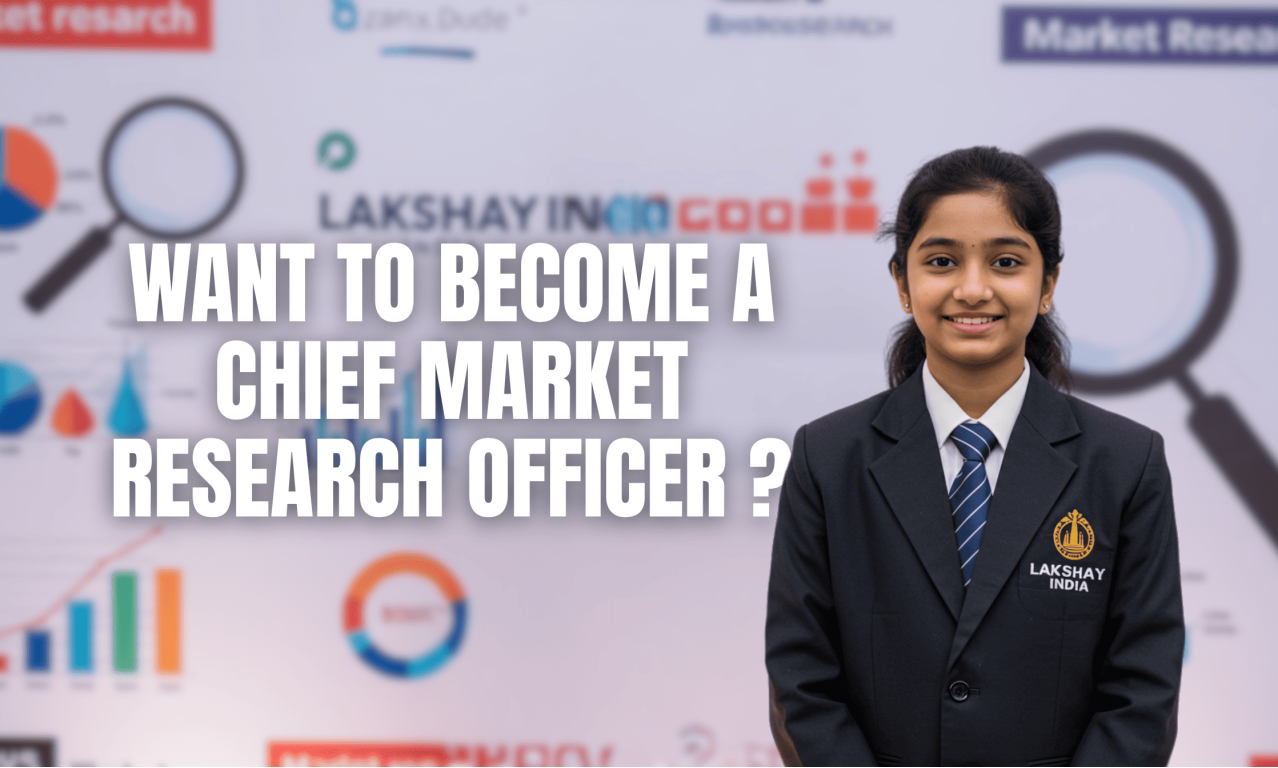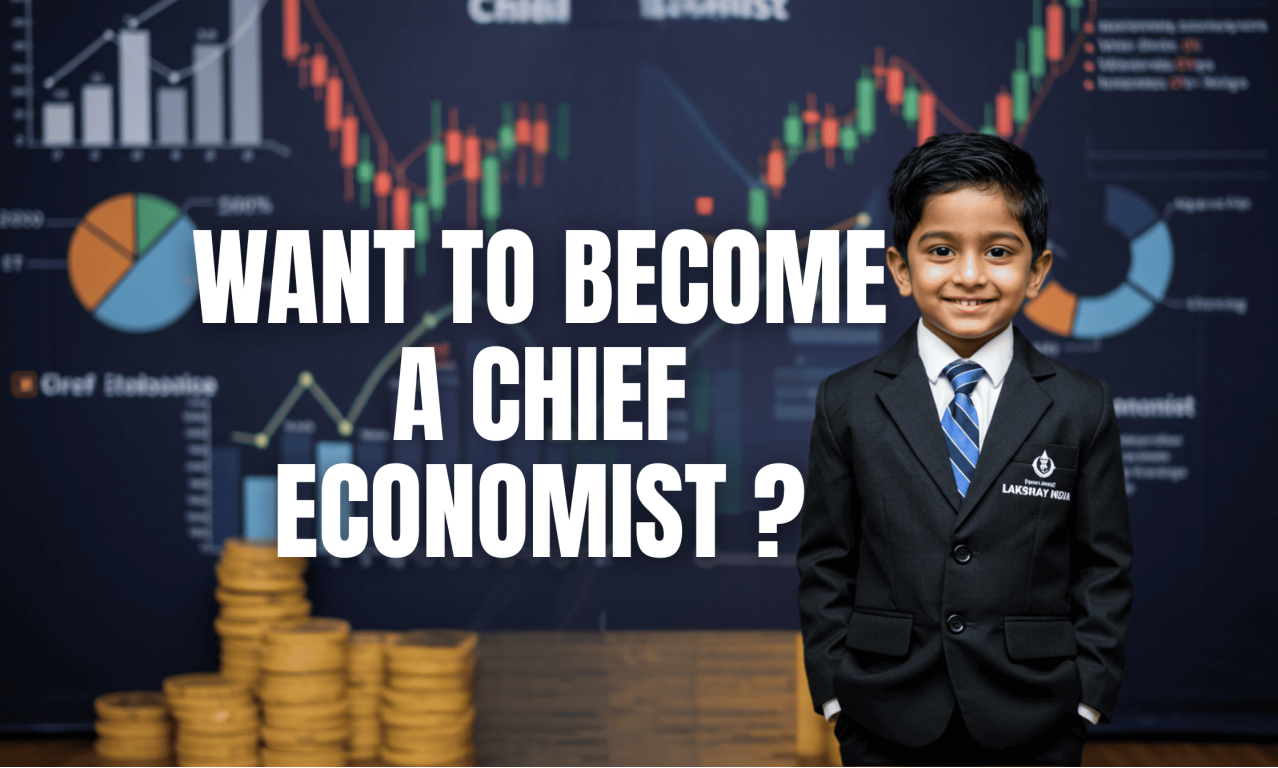Chief Economist
Who is a Chief Economist?
A Chief Economist is a senior executive responsible for analyzing economic trends, creating financial forecasts, advising governments or corporations on economic strategy, and publishing critical insights that influence public policy, investment decisions, and market confidence. They lead research teams, present economic outlooks, and serve as the voice of economic interpretation within major institutions, think tanks, central banks, or global corporations.
Step-by-Step Guide to Become a Chief Economist in India
1. Schooling (Class 8–12)
Subjects to Focus: Economics, Mathematics, English, Political Science
Olympiads/Exams: Economics Olympiads, NTSE, IEO (International Economics Olympiad)
Lakshay India Support: Aptitude tests for analytical reasoning, early exposure to economic concepts, participation in finance and economics contests, and mentorship from economists
2. Bachelor’s Degree (3 Years)
Preferred Programs:
-
B.A. in Economics (Honours)
-
B.Sc in Economics with Math/Stats
-
B.A. in Philosophy, Politics, and Economics (PPE)
Top Institutes in India:
-
Delhi School of Economics (DSE), SRCC (DU)
-
Ashoka University
-
Presidency University Kolkata
-
Christ University Bangalore
Lakshay India Support: CUET/Entrance prep, subject stream selection, and academic profile development
3. Master’s Degree in Economics (2 Years)
Specializations:
-
Econometrics
-
Monetary Policy
-
Public Policy
-
Development Economics
Top Institutes in India:
-
Delhi School of Economics (DSE)
-
Indian Statistical Institute (ISI Kolkata)
-
IGIDR Mumbai
-
Jawaharlal Nehru University (JNU)
Lakshay India Support: Master’s entrance prep, statement of purpose (SOP) coaching, and mentorship from postgrad scholars
4. PhD in Economics / Applied Economics (5–7 Years, Preferred for Top Roles)
Top Indian & Global Institutions:
-
Indian Statistical Institute
-
University of Chicago (USA)
-
London School of Economics (UK)
-
MIT / Harvard (USA)
Lakshay India Support: Research proposal planning, GRE/TOEFL prep, global fellowship guidance, and PhD mentor matchmaking
5. Career Progression in Economic Policy / Research (10–15 Years)
Start As: Research Analyst → Economist → Lead Economist → Chief Economist
Organizations to Join:
-
RBI, NITI Aayog, Ministry of Finance
-
International Monetary Fund (IMF)
-
World Bank
-
Private Banks (HSBC, SBI, HDFC)
-
Global Think Tanks & Consulting Firms (Brookings, McKinsey, BCG)
Lakshay India Support: Resume building, internship support, industry research exposure, and economist networking sessions
How to Get a Job as a Chief Economist in Global Companies
1. Obtain Global Postgraduate or PhD Credentials
Top Courses:
-
PhD Economics – Harvard, MIT, Princeton
-
MSc Economics – LSE, Oxford, Columbia
-
Master of Public Administration – Harvard Kennedy School
Lakshay India Support: Fellowship planning, LOR/SOP guidance, application strategy, and career mentor alignment
2. Join Global Economic Research or Financial Institutions
Target Organizations:
-
IMF, World Bank, OECD
-
Goldman Sachs, J.P. Morgan (Global Macro Strategy)
-
McKinsey, Deloitte, EY (Economic Advisory)
-
World Economic Forum (Policy Roles)
3. Publish Widely and Contribute to Policy Reports
-
Contribute to The Economist, Economic Times, Brookings Papers
-
Present at global economic summits (WEF Davos, G20 economic forums, WTO summits)
4. Build Economic Thought Leadership & Data Communication Skills
Maintain active blogs, podcasts, or video commentary
Use statistical tools and econometrics models to influence policy or strategy
Top Global Institutions Hiring Chief Economists
-
International Monetary Fund (IMF)
-
World Bank Group
-
OECD (Paris)
-
J.P. Morgan, Goldman Sachs
-
McKinsey & Company
-
World Economic Forum
-
Reserve Bank of India
-
United Nations Economic Affairs Division
-
HSBC Global Research
-
Deloitte Economics Institute
Highest Global Annual Packages (INR Equivalent)
| Organization | Global Salary Range (INR/year) |
|---|---|
| IMF / World Bank | ₹3.5 Cr – ₹5 Cr |
| Goldman Sachs / JPMorgan | ₹3 Cr – ₹4.8 Cr |
| OECD / UN (Chief Economist) | ₹2.8 Cr – ₹4.2 Cr |
| McKinsey / BCG Economic Unit | ₹2.5 Cr – ₹4 Cr |
| RBI / Indian Economic Advisory | ₹1.5 Cr – ₹2.5 Cr |
Key Skills Required
-
Macroeconomic Modelling
-
Econometrics & Data Analytics (Stata, R, Python)
-
Policy Impact Assessment
-
Economic Forecasting
-
Public Speaking & Report Writing
-
Monetary & Fiscal Policy Understanding
-
Research Publication & Peer Review
-
Interdisciplinary Collaboration
How Lakshay India Supports Aspiring Chief Economists
Early Economic Awareness (Class 8 onwards):
Economic quizzes, policy simulations, data storytelling challenges, mentorship from economists and IAS officers
Undergraduate & Master’s Support:
Preparation for DSE, JNU, ISI, Ashoka, and Oxford/LSE applications with full SOP, LOR, and interview mentoring
Research and Publication Mentorship:
Live research project support, exposure to journal writing, participation in RBI/NITI/Ashoka research cells
International Education & Fellowship Guidance:
Full strategy for global PhDs and policy fellowships including Rhodes, Fulbright, DAAD, and World Bank YPP
Lakshay India Economist Excellence Program:
A focused leadership track for students aiming to become chief economists, with exposure to economic modeling tools, national policy debates, and international placements
-914x546.png)

-1278x768w.png)


-1278x768w.png)




-1278x768w.png)
-1278x768.png)
-1278x768w.png)
-1278x768w.png)
-1278x768w.png)
